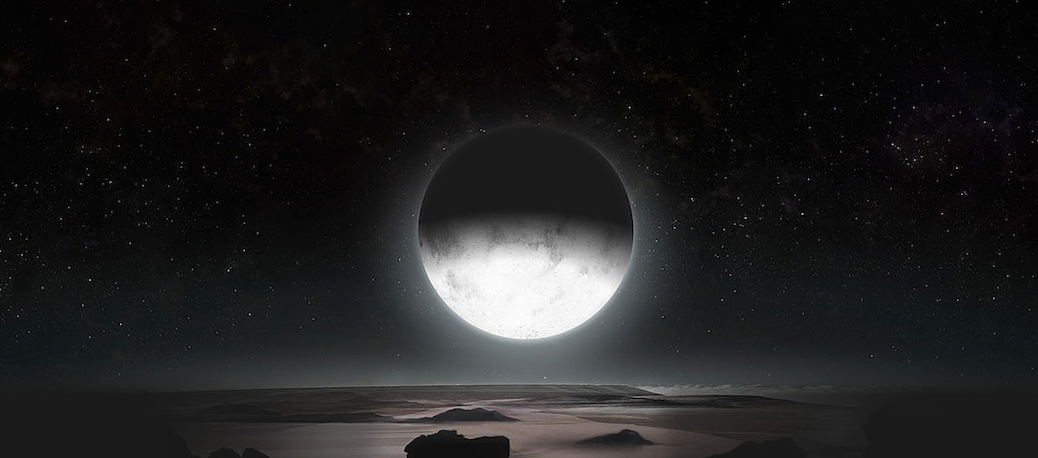
The Arthur C. Clarke Award for science fiction literature has announced its 31st annual shortlist.
- A Closed and Common Orbit, Becky Chambers (Hodder & Stoughton)
- Ninefox Gambit, Yoon Ha Lee (Solaris)
- After Atlas, Emma Newman (Roc)
- Occupy Me, Tricia Sullivan (Gollancz)
- Central Station, Lavie Tidhar (PS Publishing)
- The Underground Railroad, Colson Whitehead (Fleet)
The 6 shortlisted titles were selected from a list of 86 individual eligible submissions.
Chair of the Judges, Dr Andrew M. Butler praised the judges and the shortlist, but declined to guess at the eventual winner.
“Every year our industrious judges sift through scores of novels to pick six to represent the state of the sf field. They’ve chosen a first timer and a previous winner, as well as writers in the process of building great reputations. Any of these could win — at this point I cannot begin to guess.”
Award Director Tom Hunter added:
“The novels on our shortlist this year are fascinatingly diverse, deeply imaginative and a great tribute to the memory of Sir Arthur as we celebrate the centenary year of his birth in 2017.”
The judging panel for the Arthur C. Clarke Award 2017 are:
- Una McCormack, British Science Fiction Association
- Shana Worthen, British Science Fiction Association
- Paul March-Russell, Science Fiction Foundation
- Andrew McKie, Science Fiction Foundation
- Charles Christian, SCI-FI-LONDON film festival
Andrew M. Butler represents the Arthur C. Clarke Award in a non-voting role as the Chair of the Judges.
The winner will be announced at a public award ceremony held in partnership with Foyles Bookshop, Charing Cross Road, on Thursday 27th July 2017. The winner will be presented with a cheque for £2017.00 and the award itself, a commemorative engraved bookend.
12 Comments
-
Right, so, genre debates notwithstanding, what are we to make of this lot? Numbers first; numbers in brackets are previous years, in reverse order (2016, 2015, etc)
Women (or genders other than men): 3 (2, 3, 2, 0)
Writers of colour: 2 (1, 0, 1, 0)
Trans 1 (0, 0, 0, 0)
Other queer: not enough knowledge to assess, but not high numbers
British: 1 (4, 3, 3, 4)
UK resident: 3 (4, 5, 2, 3)
Genre imprint: 5 (5, 4, 5, 3)
Small press: 1 (0, 0, 0, 1)
First time nominee: 4 (4, 6, 5, 4)
Previous nominee: 2 (2, 0, 1, 2)
Previous winner: 1 (0, 0, 1, 0)
Set in space: 3 (3, 1, 3, 2)
Set on earth: 3 (3, 5, 3, 4)
Set in the future: 4 (5, 6, 5, 4)
Set in the present: 1 (1, 0, 1, 2)
Set in the past: 1 (0, 0, 0, 0)(Couple of judgement calls in that last trio of categories, but I think the basic trend — mostly set in the future — is solid.)
So: it is less British than the award has been for a while (while still being quite solidly of-the-UK-sf-community), at the upper end of recent levels of diversity by various metrics, and continues the award’s preference for new writers (or at least first-time nominees; and is that an actual preference or a result of churn in the industry, writers not staying in contract?), for genre imprints, and for books set in the future.
I’ve read three of the nominees, plus a lot of the stories in Central Station, so let’s say that’s four; I’ve read Chambers’ first book, and nothing by Newman. I’ve enjoyed and found things to admire in all of the four I’ve read, and think any of them would make a good winner, although much as I enjoyed Ninefox Gambit (and I did really thoroughly enjoy it), four space-y (and three space opera-y) winners in five years would be a bit wearying. There’s nothing on the shortlist other than Sullivan that could really be described as having an environmental or anthropocene awareness, which I think is a shame; although as was noted at the submissions list stage, a lot of the books that engaged with those topics were not submitted. It is not, for the most part, a list that feels urgently now to me. And the Whitehead does stick out rather in this company, and I don’t mean in terms of my reservations about its science-fictional-ness, but as a book set in the past, from a mainstream imprint, written with a deliberate seriousness that the others largely eschew (not to say they don’t tackle serious topics, but they wrap them up a bit); having put it on the shortlist, it’s hard to look past it as the eventual winner, although I think for me at this stage it’s between Tidhar and Sullivan.
-
Hi Niall,
Some interesting stats there, particularly the counts on past/present/future. I was struck by what you say about this year’s shortlist not being a line-up that feels urgently now to you (I would agree wholeheartedly, and we’ll be commenting on that in greater detail very soon). Looking back at past shortlists, with the possible exception of 2015 (you would not believe how much The Book of Strange New Things has grown on me since my review for Strange Horizons!) I find myself having to go right back to 2007 and 2008 before I find shortlists that do feel like they come close to fitting that description. Then I look at the jury line-up for those years and find that this was when a certain Niall Harrison was sitting.
This can’t be a coincidence, surely?!
-
That’s kind of you to say, but I think it probably is a coincidence. 🙂 And they’re a little flattered by history — the de Abaitua pick probably looks better now than it did at the time, for instance. Personally I would point to 2011 as a good of-the-moment list as well (minus Declare, of course), and I’d also put in a vote for 2010 as a very good year even if it doesn’t have that sense of urgency.
I think it’s a shame that if you think about two of the tectonic plates of the last decade — catastrophes of capitalism and of the environment — the list of SF novels that have both engaged with those problems and received widespread notice for doing so is relatively short. But that’s not a problem specific to the Clarke, it’s a wider issue for the field as a whole (although one that we might hope the Clarke would help to address rather than be part of…).
Looking forward to the full sharke responses over the coming week!
-
I think I would agree re 2011, but 2010 looks more like an end-of-cycle, retrospective list to me.
Re the shifting tectonic plates, one of the topics the Sharkes have been discussing at length is the migration of radical, politically engaged sf from genre imprints to the mainstream. (I think this is a point that has also been addressed – in a somewhat back-to-front manner – by Amitav Ghosh in his recent book on climate change.) You’ll find plenty on this cropping up in our next post.
-
-
-
-
Hi Niall
I agree with Nina these are interesting stats, but I differ slightly in how much they can really reveal.
There’s no attempt to be negative here, I’ve spent a lot of time sat at home over the years compiling precisely that kind of spreadsheet, but I have my doubts about how much can ultimately be revealed by focusing purely on shortlisted titles. In the end, the patterns that emerge are not really trends in the true sense of the word (in my view anyway). While it is sorely tempting to look for patterns across the years, it’s very hard to build a narrative that really makes sense when dug into.
While I wouldn’t want to encourage you to volunteer, I do think that kind of analysis applied to multiple years of our submissions lists could be very illuminating however. That whole ‘state of the industry’ thing is one of the main reasons I put that data out there.
There are a couple of trends I think are worth discussion though. The first is simply the equal numbers of female and male writers on the shortlist, which last happened in 2002.
There’s been a lot of discussion around this and related issues, especially with the Clarke’s own all male shortlist in 2013, and the point I wanted to make wasn’t a ‘hurrah, parity year’ one but rather note that this was achieved over the odds given that the M/F split in submissions is not closing that fast. A 4/2 M/F shortlist, as in the past few years, might perhaps be considered more statistically likely.
I’d like to think that a comparison of the submissions list for this year versus 2013 might show that there is progress being made beyond the straight numbers.
Another potentially trend I see in this year’s Clarke shortlist is related to A Closed and Common Orbit and After Atlas both being standalone sequels. I’ve been having conversations about that with Anne Charnock (whose Dreams Before the Start of Time is another standalone sequel out this year) relating to our own Ada Lovelace Conversations project, concerning how more explicit sequels, trilogies etc might affect the visibility of women in shortlists and so forth where a smaller pool of books is further reduced if many are books two or three. This also affects buzz and publisher marketing support and so on in the wider sf conversation where new titles can often garner the limelight.
I’m trying to pack a lot into a short post here under time pressure, but for me I think there’s something deeper to be explored in the idea of a standalone sequel. What do others think?
-
One more thought on the above. Niall calls out the Clarke Award shortlist for not feeling urgently now. Nina wholeheartedly agrees. So, does this mean that the Shadow Shortlist is also at least 1/3 non-urgent given the two share books?
Perhaps there is wriggle room where Niall qualifies with ‘for the most part’ and those two shared titles have the requisite urgency?
If that’s the case then I’d suggest that the Clarke shortlist is actually rather more successful than given credit for in this Shadow project.
Given the Shadow project was based on a cherry pick of the full submissions list by a particular critical cohort with equally particular views on science fiction and the Clarke’s role within the field (which the Clarke Award itself incidentally might not agree with and never have made part of its official mission) the Shadow Clarke shortlist is not really so surprising or, dare I say, revolutionary.
When I compare the two lists I see the obvious two shared books, then the further two Occupy Me and Ninefox Gambit which were also under discussion by the Shadows, and then finally the two which the Shadows weren’t interested in considering, A Closed and Common Orbit and After Atlas.
Given the Shadows restricted their reading (for very understandable practical reasons, I know) whereas the Clarke judges read everything, the idea that the official shortlist would span a greater range of titles from critically ‘urgent’ to more, shall we say, popular works that are still awards worthy (the first prize to notice Becky Chambers for example were The Kitschies) I’d like to propose that the Clarke shortlist has actually been very successful in identifying and shortlisting six very different definitions of what ‘best’ currently means across different areas of science fiction.
Given the Clarke Award is for the best science fiction novel of the year, and neither science fiction or best are predefined, I would personally call that a win.
-
Hi Tom,
You call the Sharkes a ‘particular critical cohort’, as indeed we are. In this respect, we are no different from any other Clarke jury in that we represent but one snapshot of critical opinion in one particular moment. I would add though that we have no joint mission statement as regards what is ‘best’ – our critical attitudes to and positioning within genre vary considerably. We did, however, begin with the ideal of presenting a shortlist that felt coherent in what it was saying about the field, and we all made compromises – as any jury must – in order to support that aim. That our view differs from the official jury’s findings – and theirs from ours – is absolutely a part of what the Sharke is about.
The shadow Clarke shortlist – indeed the whole shadow Clarke project – was never intended to be in competition with the Clarke Award over what is ‘best’. The point of the Sharke is and always has been to encourage debate. We have all of us, to varying degrees, felt concern over the lack of critical engagement with the Clarke in recent years. There has been a lot of ‘positive promotion’, sure, and there’s nothing wrong with that. But what we’ve seen less of is rigorous critical analysis of the books in contention. We wanted to address that – science fiction is a literature of ideas, and we want to see more ideas about what SF can do and be. It is this sort of debate that keeps the Clarke Award alive and relevant.
I think Nick Hubble put it best, in his comment on our shadow response today: “The positive thing about both the 2017 shortlist and our shadow list is that we can review a lot of books alongside each other – and maybe even incorporate other kinds of discussions (roundtables etc) and therefore show what is at stake in real terms in these kinds of critical arguments. That is what is motivating me to do this.”
There is no ‘challenge’ to the Clarke Award shortlist – just a challenge to interested parties to talk about books in terms other than unqualified approval. Which is what we’ve been doing. Of course, we are going to defend out own shortlist – but that is all in the normal nature of literary debate and should not be construed as an attack on any writer, writers or indeed any award. We would each of us personally defend some books on our list more than others – and I’m sure individual members of the Clarke Award jury would find themselves in agreement with us on that. A good part of the interest in this for us also is seeing how our views shift and change the more we read, the more we talk about what we read. We might well end up having different views about both shortlists by the time the winner of the Clarke is announced in July! But again, the questioning of preconceptions, the broadening of literary knowledge, and the debate around both is what the shadow Clarke is all about.
-
Thanks Nina, but just to clarify on my original question, when you said you wholeheartedly agreed with Niall that this year’s shortlist ‘lacks urgency’ in your personal view (not that of the other judges) are you saying that the Whitehead and Tidhar crossover on the Shadow list are also non-urgent there as well e.g. In your view is the Shadow list is at least 1/3 non-urgent?
Curious minds are keen to know…
-
I will do my best to answer this question in reviews to come 🙂
-
Looking forward to that then, thanks.
-
-
-
-
-
Tom, when you talk about a “particular critical cohort” it sounds like you think critical is a bad thing. But in fact any response to a work of art is an act of criticism. Judging a literary award is an act of criticism. Voting in a popular vote award is an act of criticism. Criticism is not negative but evaluative. We are not concerned to pre-empt the Clarke jury, but rather to work alongside it, to offer different perspectives, and to further the discussion. At the same time, we are readers, we are people who came together precisely because we have an interest in the future of the Clarke Award, and as interested and knowledgeable readers we have as much right to express opinions about the Clarke shortlist as everyone else has to express opinions about the Sharke Six. There is no right or wrong here, there is no absolutely perfect shortlist, there are only opinions and choices and preferences. The Clarke Award was originally established to encourage science fiction, to widen the discussion, and that is what the Shadow Clarke jury is here to do also. We’re all working for exactly the same thing.
-
Hi Paul, no I can quite definitely say that isn’t what I think, and my use of that phrase is actually much simpler.
I’m merely saying you are a particular group of critics. If it’s the word ‘cohort’ that troubles you, I’m using it purely in a marketing datasets type context. You all are one point on the map of how I evaluate the award. There are, of course, other equally valid measures and opinions as you yourself say, and there’s nothing loaded in that sentence.
When I was first approached about this project, one of my main reasons for signing us (the award) up was having picked up on the conversation about a lack of critical space in the UK, particularly from Nina and I didn’t Jonathan even have a BSFA non-fiction nomination on the subject, his ‘what price’ article?
Where this project has been most successful for me is in the individual comprehensive reviews of books, and give a lot of those were titles I made efforts to have submitted I’m especially pleased to see them being given attention regardless of anyone’s shortlists.
Less successful for me are the many claims for what the Clarke Award should be or how people keep saying that it’s failing against criteria which are actually not and never have been its explicit remit. Nothing new there of course, I’m sure you remember that all too well, although I had hoped for a little less confusion on that side of things from the Shadow Team where there’s still an unfortunate tendency to conflate ones own opinion of what the Clarke ‘should be’ with the opinion that it is therefore failing somehow if it doesn’t hit those personal marks.
On its own terms, and the ones I measure, the award is doing rather well right now.
Anyway, my main ambition for this project isn’t anything to do with the Shadow Clarke at all when we get right down to it. What I’m really hoping is that the focus of critical attention collected here combined with the draw of the Clarke Award’s profile will help focus attention on the broader CSFF project and that, post Shadow season, that enduring hub for critical discourse people are searching for is there to stay.
Hope that helps
The Clarke might take a temporary hit, but there’s definitely the chance for a bigger longer term win, and the award is quite big enough to take a critical hit or two.
-


